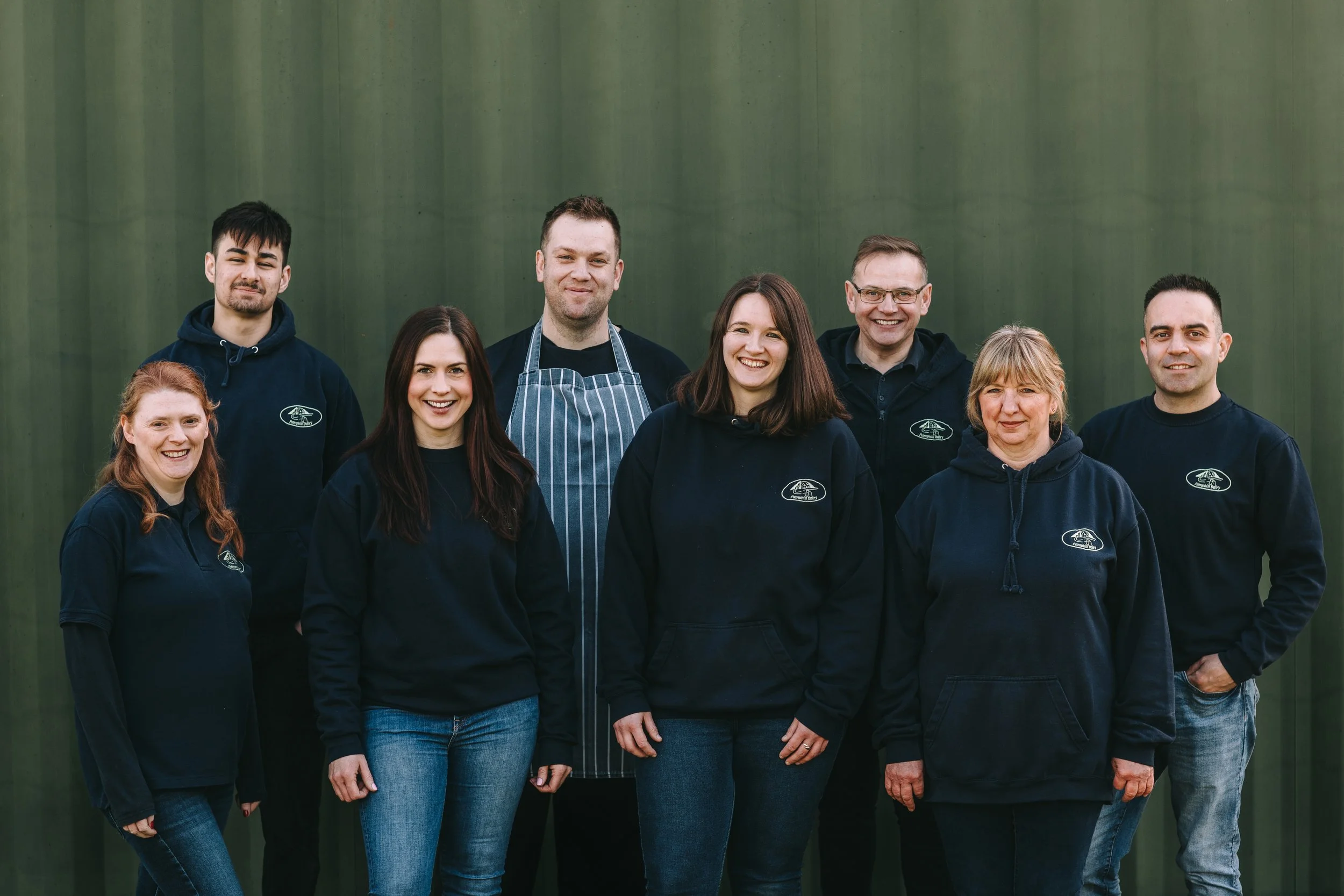ABOUT US
Our Story
Pamphill Dairy is an idyllic spot nestled in the village of Pamphill, just outside of Wimborne Mister. Our family run business has flourished for many years and is a collective of the finest in local produce, farm shop, café, butchery and artisans, making it one of Dorset’s best loved places to visit all year round.
Pamphill Dairy was originally a dairy farm as part of the Richards dairy enterprise based at Chilbridge farm. The cows used to cross the B3082 from their grazing fields over to Pamphill, where they were milked in the parlour. In the 1980’s it was decided that the buildings at Pamphill were no longer suitable and the road crossing was getting too dangerous, so it was converted into a farm shop by Jim and Wendy Richards in the early 1980’s. It started with selling fresh eggs from the cottage and over the last 40 years has developed into the establishment we have today. There has always been a farm shop, café and butchers and we have always focused on supporting local brands, independent suppliers and sourcing local produce from our own and neighbouring counties.
Meet The Team
Here are just some of our amazing team.
From Left to Right:
Miles-Butcher, Calum-Head Chef and Ice Cream Creator, Ed-Head Butcher, Sebastien-Parlour Café Manager. Kirsty-Farm Shop Team Member, Dani-Assistant Farm Shop Manager, Tash-Farm Shop Manager, Lulu-Owner.
Our Farm
Chilbridge Farm is part of the Kingston Lacy Estate and has been farmed by the Richards family for 152 years. They were originally tenants of the Bankes family but since 1982 have been tenants of the National Trust when the estate was left to them.
The farm has changed significantly over the years, it was originally heavily focused on livestock production following the war. There was a pig unit, chicken unit and large dairy based at Chilbridge Farm with additional sites at Pamphill and Sturminster Marshall. At this time the farm employed 52 people and produced a lot of its own feed by growing crops, milling 12,000 tonnes of animal feed a year. Since 1990 this has changed with farming practises and market pressures, the pigs were phased out from the mid-90’s, the dairy left in 2001, and the chicken’s in 2009. The farm is now predominantly an arable farm producing oilseed rape for its oil, used for human consumption, malting barley for beer, feed wheat for animal feed and linseed for oil. The farm is heavily mechanised now and only requires three members of staff, showing how much has changed in a relatively short period of time. Most of the farming operations are done in house with occasional use of contractors for things such as baling and slurry spreading.
The farm has it own beef suckler herd which for the last couple of years has supplied our butchery with beef. The herd grazes the grass at Chilbridge farm and Newton farm in Sturminster Marshall in the summer months and then housed at Chilbridge over the winter. This means we are producing a great quality product with low food miles as our farm is less than 1.5 miles from Pamphill Dairy. It also means the butchery can work closely with the farm to ensure we are producing what our customers want.
Sustainability
Reduced Food Miles
We focus heavily on sourcing our produce from local farmers, producers and suppliers. In doing so we help support the local Economy and businesses, as well as drastically reducing food miles.
Packaging
Here at Pamphill we do our very best to use recyclable packing. Our farm shop offers paper bags, cardboard boxes for reuse and both jute and canvas bags can be purchase from our till point. Our butchery have recyclable, leak proof and freezable brown paper bags. The takeaway café use Vegware (plant -based and compostable) food packaging and coffee cups. We also encouraging the use of our store cupboard goods refill station and are proud suppliers of Fill, offering eco friendly cleaning and hygiene products.
Sustainability on the Farm
One way as a business we have tried to be more sustainable is in parts of our farming we use technology, so we are variably applying our fertilisers which means we are using less and only giving it to the areas that need it. This stops us wasting it and potentially causing harm to the environment by putting more on than is needed.
We are also part of a stewardship scheme which means we have taken parts of the farm away from production to introduce nectar strips for pollinators and winter bird food for birds and other wildlife on the farm.
We are also part of a farm cluster group which was formed in 2021 where we are working with other farmers in the area to try to improve the natural habitat in the local area around Badbury rings.


